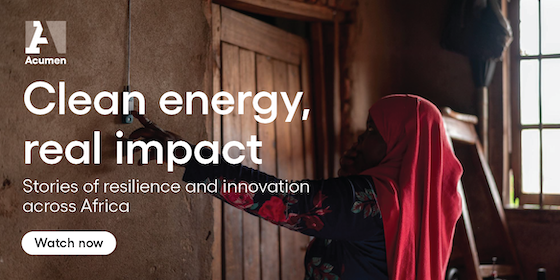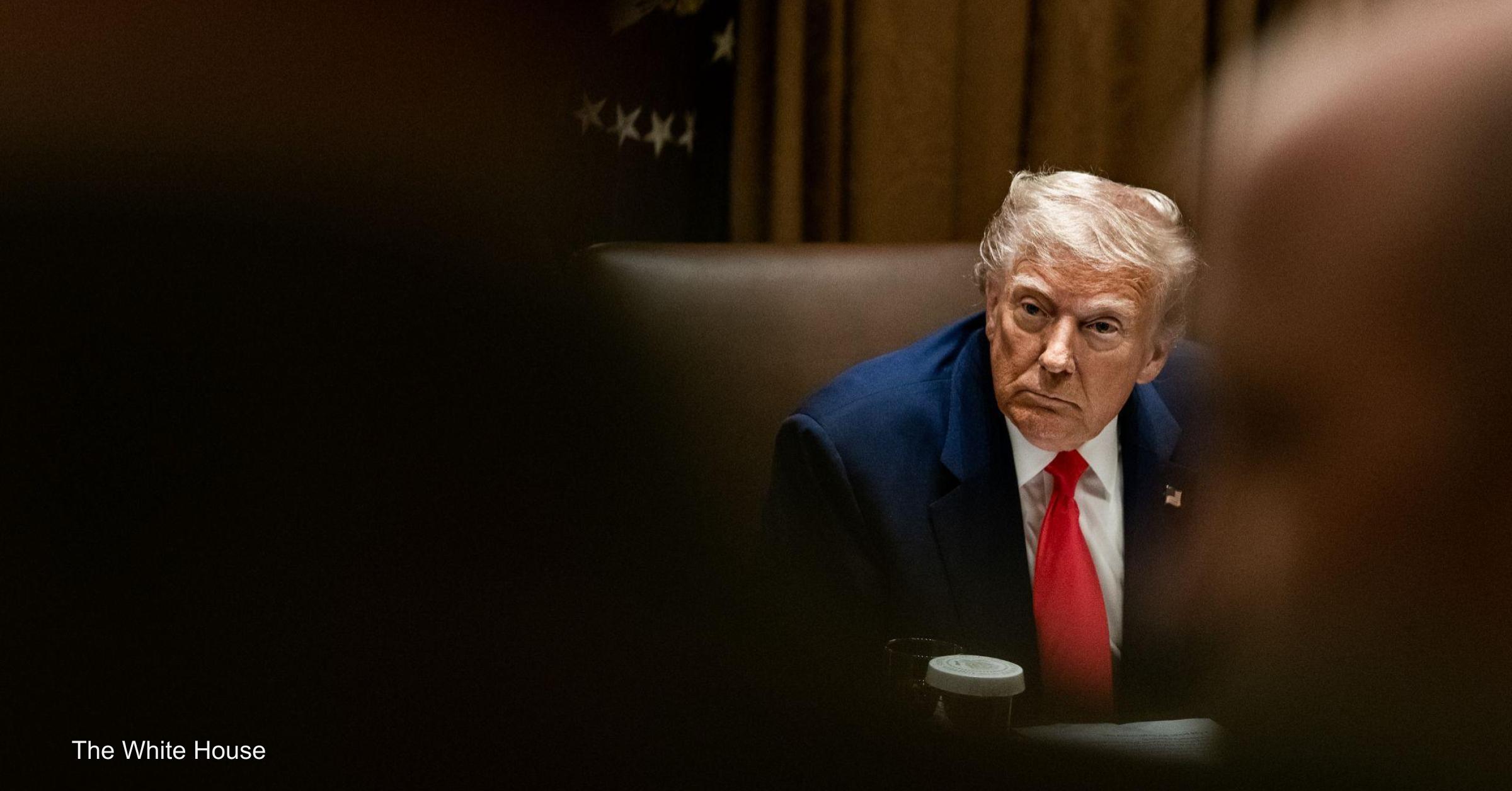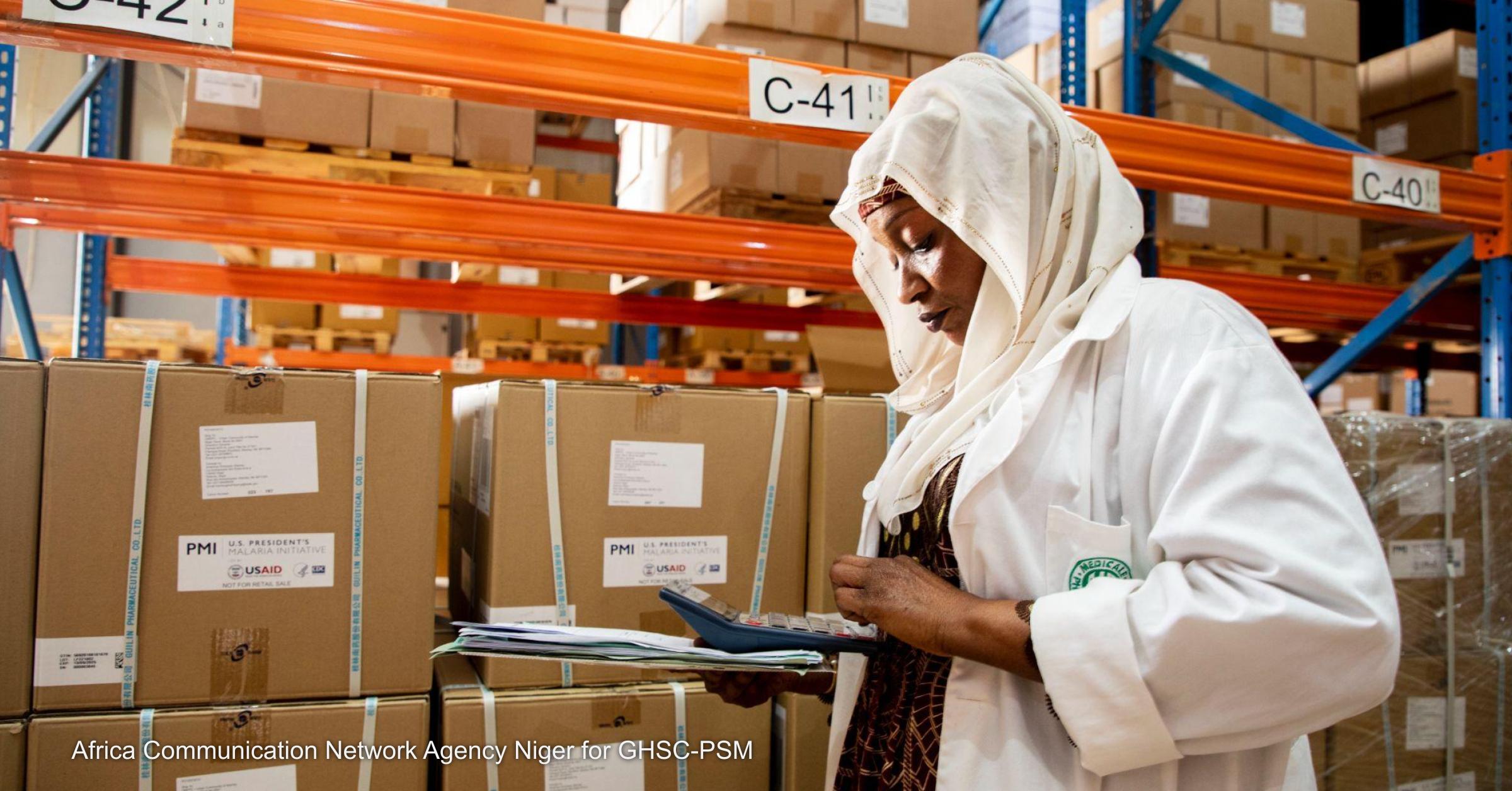It’s been 100 days since U.S. President Donald Trump upended foreign aid — and the fallout has been swift and staggering. In just three months, more than 80% of USAID’s programs have been terminated. Today, the few nonprofits left are struggling to fill the gaps.
Also in today’s edition: The fallout of a virtually shuttered Millennium Challenge Corporation and how a plunge in commodity prices is shaking developing economies.

|
Paused, slashed, and burned
The United States’ foreign aid freeze — billed as a 90-day review — has resulted in a global unraveling of the aid apparatus facilitated by the world’s largest donor. Programs have been canceled, un-canceled, and re-canceled; entire agencies have been gutted; and those that survived have been forced to carry the load.
After that foreign aid review was declared finished, the Trump administration extended it yet again. And the result? At least 36 million people in the world’s worst crisis zones may be left without support.
“When big actors exit suddenly, like in this situation, the system doesn’t just pause. It breaks,” Aliona Pashchenko, a program manager at the Ukrainian nonprofit The Tenth of April, told me last week.
With no clear signal from Washington on what comes next, the humanitarian community is bracing for continued, systems-level disruption — not just at USAID, but across all the U.S. agencies that were once committed to foreign assistance.
Read: How Trump’s first 100 days have meant chaos for US foreign aid
ICYMI: Trump administration extends foreign aid review for another 30 days
| Join us next Tuesday, May 6, for an exclusive conversation to dissect the impact of the Trump administration’s first 100 days on the global aid infrastructure and look forward to what we can expect to see next. Save your spot now. |
|
 Bringing clean energy to Africa’s hardest-to-reach communities
Bringing clean energy to Africa’s hardest-to-reach communities
See how Acumen is transforming lives through cleantech investments in Africa. From Ampersand’s electric motorcycles to Yellow’s solar home systems, these stories spotlight the real people powering change.
Watch the short films from BBC StoryWorks’ “Humanising Energy” series, and explore Acumen’s bold approach to ending energy poverty.
Learn more and watch the stories at acumen.org/energy-news
|
Case in point: the Millennium Challenge Corporation. Last week, my colleague Adva Saldinger broke the story that the Department of Government Efficiency had steamrolled its way into MCC, an aid agency known for its results-based compacts and bipartisan appeal.
“It's stunning to me, the irony to go after an agency that has, time and time, delivered one of the most cost-effective ways of bringing people out of poverty,” says Harvard University’s Fatema Sumar, who previously served as MCC’s vice president of compact operations.
But here’s the twist: Several sources tell Adva that it seems like the Trump administration was not aligned on MCC’s fate, and there’s even speculation that Secretary of State Marco Rubio — who chairs the agency’s board — might not have been informed about DOGE’s plans in advance.
Now there are efforts inside the State Department to save MCC. But with many of the agency’s partner governments hearing about the news not through the government, but through the media, trust in MCC — and in the U.S. government — seems to already be splintering.
“To the extent you have these half-finished infrastructure projects, they’ll be monuments to U.S. inconsistency and U.S. neglect,” says John Simon, who helped build MCC in the early days. “A giant advertisement in the middle of a country about how the United States can’t be trusted.”
Read: MCC shutdown would risk global trust, cede ground to China, experts warn
Explore the data: MCC in numbers — the grants, countries, and programs at stake 
 Not yet a Devex Pro member? Start your 15-day free trial now to access the event as well as all our expert analyses, insider insights, funding data, and more. Check out all the exclusive content and events available to you. Not yet a Devex Pro member? Start your 15-day free trial now to access the event as well as all our expert analyses, insider insights, funding data, and more. Check out all the exclusive content and events available to you.
|
Global commodity prices are expected to drop to their lowest levels since the pandemic began, according to the World Bank’s latest Commodity Markets Outlook. Prices are projected to fall 12% this year and another 5% in 2026, marking the end of a boom driven by the global economy’s recovery from COVID-19 and the war in Ukraine, my colleague Jesse Chase-Lubitz tells me.
While falling energy and food prices may help curb inflation amid rising trade tensions, the World Bank warns the price plunge could hinder economic growth in two-thirds of developing economies — particularly commodity exporters.
“The combination of high price volatility and low prices spells trouble,” says World Bank Chief Economist Indermit Gill, urging developing economies to restore fiscal discipline and liberalize trade.
Energy prices alone are expected to fall 17% this year, with one type of crude oil averaging $64 a barrel, down from $81 last year. Coal prices are set to fall 27% this year as demand weakens. Food prices are also forecast to decline, though acute food insecurity is expected to rise in 22 vulnerable economies, affecting 170 million people.
Gold is the outlier, likely to hit a record high this year amid geopolitical uncertainty. But overall, commodity price cycles are becoming shorter and more intense, the report finds — with volatility reaching its highest level in over 50 years.
“In an era of geopolitical tensions, surging demand for critical minerals, and more frequent natural disasters, that could become the new normal,” says Ayhan Kose, the World Bank Group’s deputy chief economist and director of the Prospects Group. “Successfully navigating through repeated commodity prices swings will require developing economies to build fiscal space, strengthen their institutions, and improve investment climates to facilitate job creation.”
Learn more: US tariffs threaten to push debt-distressed nations closer to the brink
|
Opinion: 5 ways to help cancer care
Medical advancements, increased screening rates, and expanded treatment options have helped bring considerable improvement in cancer survival rates, but large groups of patients still face inequities in prevention, diagnosis, and treatment.
|
Three months into Trump’s second term, the aid sector is sorting through the rubble. Over the last few days, my colleague Miguel Antonio Tamonan has done the same — and he’s figured out which organizations have survived the storm so far.
“Overall, we identified 15 organizations with at least $100 million of active unobligated funding,” Miguel writes. “Among them, four are for-profit, eight are nonprofit, two are multilaterals, and one is a U.S. government agency.”
So, who made the list? Chemonics is at number one, with seven active awards worth a cumulative $11.4 billion. FHI 360 comes next, with 16 active awards worth $2.2 billion. And Abt Global ranks third, with three active awards worth $1 billion.
That being said, there is a caveat. Miguel analyzed unobligated funding to create this list — that is, part of the total cost estimate that’s not yet committed but could potentially be received by the organization in the future. In a typical scenario, obligated money would be channeled to its intended target. But today, many are bracing for recissions or even impoundment of obligated funds by the U.S. Congress, meaning lawmakers could claw back money that was already slated to be spent.
Read: Who’s still standing? USAID’s new top 15 implementers 
 Get the latest development funding insights and analysis, as well as practical business development and resource mobilization advice, in your inbox every Monday by signing up for Devex Money Matters, a free weekly newsletter. Get the latest development funding insights and analysis, as well as practical business development and resource mobilization advice, in your inbox every Monday by signing up for Devex Money Matters, a free weekly newsletter.
|
Others have been less lucky. In recent days, we’ve seen another wave of layoffs hit the aid sector, this time at multiple United Nations agencies. At the World Health Organization, both senior leadership and departments are being cut to about half; at the UN Refugee Agency, or UNHCR, the number of senior leadership positions will be capped while several country offices close.
“The cuts come as several U.N. agencies — including the World Food Programme and the U.N. Office for the Coordination of Humanitarian Affairs — have announced major reductions to staff and programs in recent months,” writes my colleague Ayenat Mersie. “The humanitarian sector is facing what officials describe as an unprecedented funding crisis, fueled in part by a freeze in U.S. foreign aid under President Donald Trump.”
At WHO, it’s not clear who will remain in the organization’s senior ranks, my colleague Jenny Lei Ravelo reports. There’s also no clarity on how many staffers will be let go. The same can be said for UNHCR, though internal communications seen by Devex illustrated a 30% reduction in overall costs and regional bureaus and Geneva headquarters, while spending authority for operations will be reduced by 23%.
“I have been dealing with humanitarian crises for more than 40 years,” said UNHCR chief Filippo Grandi, speaking at U.N. headquarters last week. “I have never, ever seen such a challenge due to the lack of resources, cuts, freezes, and uncertainty.”
Read: UN Refugee Agency to close some offices as donors cut funding
See also: WHO to slash senior leadership and departments to about half
|
5 billion people lack access to safe, affordable surgery. Here’s what needs to change
In a special edition podcast episode, Operation Smile’s Chief Medical Officer Dr. Billy Magee and University of Rwanda professor Faustin Ntirenganya discuss the state of access to surgery worldwide, and why training of surgeons should be a top priority.
|
A federal judge ordered the Trump administration to reinstate $12 million for the pro-democracy outlet Radio Free Europe. [AP]
U.N. Secretary-General António Guterres warned that the two-state solution for Israel and the Palestinian territories is on the brink of collapse, urging irreversible action to salvage the prospect of lasting peace. [UN News]
COP30 President André Corrêa do Lago called the upcoming U.N. climate talks an “uphill battle” as Trump’s rollbacks, tariffs, and environmental cuts undermine global cooperation efforts. [The Guardian]

|
Thank you for reading today’s Newswire, edited by Fiona Zublin, copy edited by Florence Williams, and produced by Patricia Esguerra. Have a news tip? Email elissa.miolene@devex.com.
Forwarded by a friend?
|
Devex thanks our partners for supporting our newsletters.
Our editorial content remains independent.
Interested in partnering with us?
Get in touch.
Would you recommend our content?
|
|









